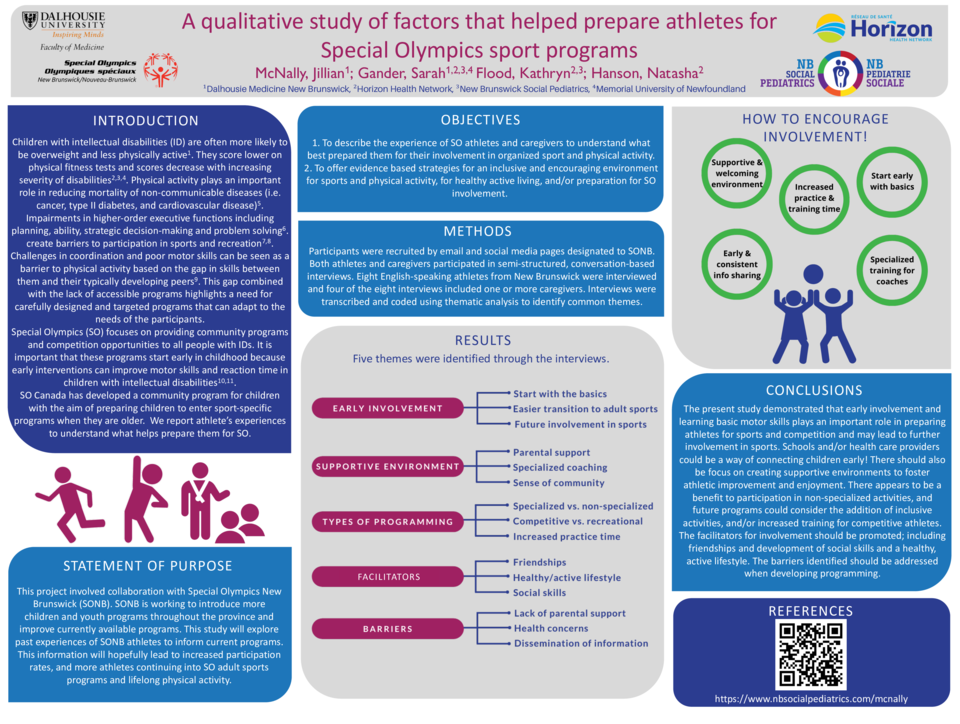Abstract
Currently, Special Olympics (SO) is working to introduce more child and youth programs throughout the province and improve currently available programs. A thorough literature review suggested that there has been little research surrounding the experiences of SO athletes. Given the SO aim to improve and grow, the present study explores the experiences of SO athletes and caregivers in an attempt to understand what prepares athletes for SO programs and competition.
Participants were recruited by email and social media pages designated to SO, and participation was voluntary. Both athletes and caregivers participated in semi-structured, conversation-based interviews. Eight English-speaking athletes involved in a variety of sports from around the province were interviewed, and 4 of these interviews included caregivers. Interviews were transcribed and coded using thematic analysis.
Five themes were identified throughout these interviews. The importance of a supportive environment emerged as a strong theme. Athletes valued the support of caregivers, coaches, and other players and felt this helped them improve and garner more enjoyment out of their sport. Many athletes and caregivers discussed what motivated them to get involved and stay involved in SO. Common motivators included a healthy, active lifestyle, friendships, and social skills. Barriers to involvement were also commonly discussed and included parental support, transportation, dissemination of information, and health concerns. Additionally, many athletes and caregivers felt that early involvement, starting with the basics was important for developing skills to help transition to sports and competition. Finally, types of programming including non-specialized vs specialized activities were discussed. Advantages of non-specialized activities included more time for practice and integration into society.
In conclusion, it is important that programs create a supportive environment, as this helps athletes improve and leads to further enjoyment. There is a benefit to participation in non-specialized activities. Future programs could consider the addition of inclusive activities, or promotion of these activities. The motivators for involvement should be promoted, including friendships/social skills and a healthy/active lifestyle. The barriers identified should be addressed when developing programming. Early involvement and learning basic motor skills play an important role in preparing athletes for sports and competition and may lead to further involvement in sports. Therefore, early participation should be encouraged, and programs should find ways to reach more of this population, possibly through schools or physicians.






